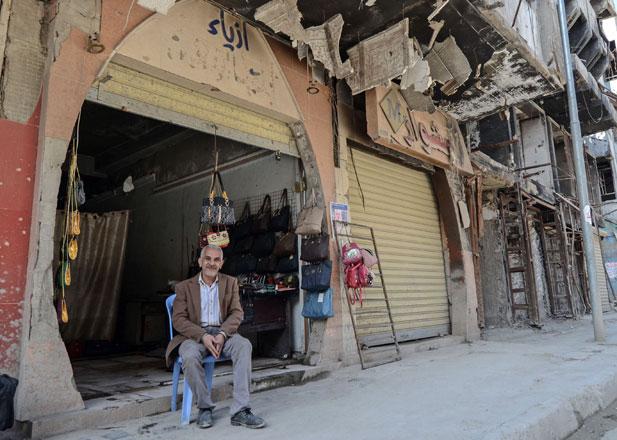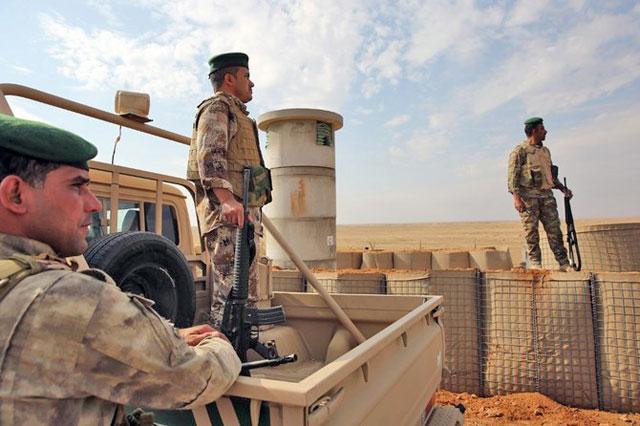You are here
Iraq condemns to death four Daesh members repatriated from Syria
By AFP - Apr 21,2019 - Last updated at Apr 21,2019

A man sits in front of a clothing shop under a damaged building in a neighbourhood of the old city of Mosul, in northern Iraq, on Sunday (AFP photo)
BAGHDAD — Iraq's judiciary condemned to death four Daesh group members on Sunday, the first known sentence for hundreds of Iraqi militants repatriated in recent months from neighbouring Syria.
In early April, Iraq's specialised terrorism courts began preparing cases against nearly 900 Iraqis accused of joining Daesh.
hey had been caught in Syria by the US-backed Syrian Democratic Forces (SDF), an alliance of Kurdish and Arab fighters, and transferred to Iraqi authorities.
On Sunday, the judiciary said it had tried four Iraqis "accused of belonging to Daesh and carrying out crimes against innocent civilians in order to destabilise Iraq and Syria".
They were sentenced to "death by hanging" in accordance with Iraq's 2005 counterterror law, the statement said.
The sentence was the first one of its kind for accused militants from Iraq who were caught in Syria.
Additional Iraqi suspects are in SDF custody and are awaiting repatriation, a security source told AFP earlier this month.
Iraq has already tried thousands of its own nationals arrested on home soil for joining Daesh — including women — and has sentenced hundreds to death.
The country remains in the top five "executioner" nations in the world, according to an Amnesty International report released last week.
The number of death sentences issued by Iraqi courts more than quadrupled from 65 in 2017 to at least 271 last year.
But fewer were actually carried out, according to Amnesty, with 52 executions in 2018 compared to 125 in 2017.
In addition to locals, Iraq has also tried hundreds of foreigners, condemning many to life in prison and others to death, although no foreign Daesh members have yet been executed.
Among those awaiting trial in Baghdad are 12 accused French Daesh members, who were caught in Syria and transferred to Iraqi custody in February.
Rights groups including Human Rights Watch have criticised the trials, which they say often rely on circumstantial evidence or confessions obtained under torture.
Related Articles
BAGHDAD — An Iraqi court on Sunday sentenced three French citizens to death for joining the Daesh group, the first Daesh members from F
BAGHDAD —The Iraqi judiciary has tried and sentenced more than 500 foreigners since the start of 2018 for joining the Daesh group, the
BAGHDAD — A Baghdad court sentenced two more Frenchmen to death on Tuesday for joining the Daesh group, raising the number of French Daesh m

















